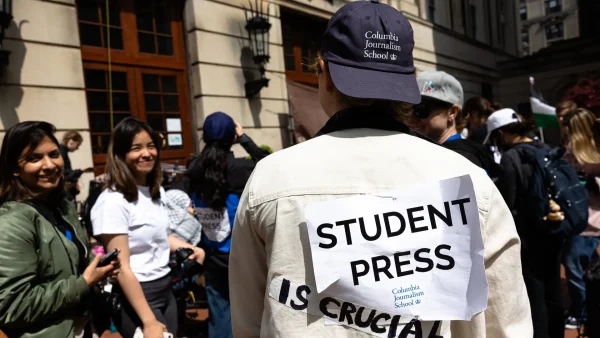Is streetwear dead? Let the students decide
Virgil Abloh recently said “I would definitely say [streetwear is] gonna die.” Juniors Auggie Gutzmer and Andrew Lock and other south students beg to differ.
January 16, 2020
Recently, Virgil Abloh made a statement claiming streetwear will die in 2020 and he’s not exactly seeing eye to eye with some South High students. In an interview with Dazed, Abloh stated, “I would definitely say it’s gonna die, like, its time will be up. In my mind, how many more t-shirts can we own, how many more hoodies, how many sneakers?” Now you may be wondering: who’s Virgil Abloh and what’s streetwear? Virgil Abloh made a name for himself as a fashion designer at the head of popular clothing brand Off-White, and has since been picked as creative director of high end brand Louis Vuitton. He got his start in the industry with streetwear, a more casual genre of fashion for people who like to look good in an everyday environment.
The idea of streetwear is an elusive one, and students have often had a hard time putting a finger on exactly what it is. “[Streetwear is] high fashion for a lower price, but they can also charge higher for it,” says Sonya Maier, a senior and a former leader of the South High Fashion Club, which no longer exists.
Streetwear isn’t just one thing. It has many different meanings and interpretations. “The definition of streetwear can vary depending on the person,” said junior Andrew Lock.
Regardless of your idea of streetwear, it is impossible to deny the aftermarket for the clothes where the price increases tenfold after it sells out. “It relates to the state of current fashion. Brands are dropping small quantities and then the value of their products go up in the aftermarket,” said senior Kieran McLaughlin.
The amount of which the price increases is dependent on the ‘hype’ of the piece. Hype is the general enthusiasm and excitement throughout the streetwear community for a piece to release. Once it is released, the hype makes it sell out in seconds and those that are out of luck are stuck paying marked up prices. Hype can depend on whether a certain celebrity has been given early access or if it’s from a brand that has a lot of traction at the moment.
However, a lot of people actually see this as negative because the hype tells people what clothes and shoes to like instead of letting people have opinions of their own. This also builds a superiority complex in people that think that they’re better than everyone else because they wear a certain brand. “Some people are just trying to prove that they have money without even liking the clothing,” says junior Augie Gutzmer.
Part of the problem is that people who genuinely love the clothes are being overshadowed by people who only buy clothes that have hype. These people are called ‘hypebeasts.’ “I think that hypebeasts are negative,” said Lock.
Other elements of streetwear and a possible reason for Abloh’s statement is the problematic nature of the industry. “The fashion industry is really fucking up our environment. And the labor that goes into making fashion in third word countries… It’s a very corrupt system,” said Lizzie Voravong, a senior and former leader of the South High fashion club.
The fashion industry is responsible for about 10% of Earth’s greenhouse gas emissions, and streetwear is a big part of that. Apart from the factories making the clothes, a lot of these emissions come from the end of every fashion season, when countless brands burn the clothes they don’t sell so as not to flood the market. “Millions and millions of dollars worth of clothes get burned at the end of every fashion season. They want it to be really exclusive,” Voravong said.
Some students are making the progressive move of shopping at thrift stores as a means of recycling clothes. “I think that thrifting is really good because there’s so much clothes that we don’t use,” said Voravong.
With this being the generation of social media, it is considerably easier to start a streetwear brand and gain a following. This means a lot of older brands with celebrity backing are being pushed out in favor of more accessible style. “Before it was these big brands, but now you’re seeing all of these little brands on instagram that seem to do the same thing,” McLaughlin explained.
This may be positive for streetwear consumers, but it’s easy to see how Abloh would be opposed to this upheaval of traditional streetwear brands. After all, he did start out in streetwear before moving to high fashion.
So ultimately, what does all of this mean for streetwear? Students think Abloh’s words alone aren’t enough to erase streetwear going into a new decade. “Virgil can definitely shift the dynamic, but people are still gonna do what they always do. Unless he gets a movement going, I don’t know if he can just kill it outright by saying it’s dead,” said McLaughlin.
With people trying to be environmentally conscious as well as exploring new fashion territories, Lock thinks streetwear might be here to stay. “I don’t think it’s gonna go anywhere. I do think that people’s styles are going to diversify and people are gonna start finding their own little niches in fashion,” he said.

![Virgil Abloh recently said “I would definitely say [streetwear is] gonna die.” Juniors Auggie Gutzmer and Andrew Lock and other south students beg to differ.](https://www.shsoutherner.net/wp-content/uploads/2020/01/STREETWEAR-900x599.jpg)




Jemmy Thorne • Mar 26, 2020 at 1:33 am
For me, personally, streetwear has never and will never be ‘dead’. I think it’s just the type of streetwear that would die. Just like how all of those trends in the previous years and even decades would die down and be replaced by new ones but they still would fall under some wider category.